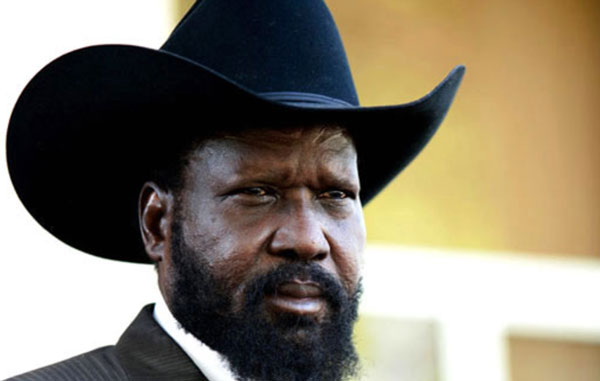
United Nations, United States | AFP | The United States on Wednesday called for an international arms embargo to be imposed on South Sudan following the failure of the latest ceasefire aimed at ending the four-year war.
US Ambassador Nikki Haley told the Security Council that President Salva Kiir’s government was “increasingly proving itself to be an unfit partner” in efforts to restore peace and urged African leaders to hold it accountable.
“The time has come to acknowledge the hard reality – that the leaders of South Sudan are not just failing their people, they are betraying them,” Haley told a council meeting on South Sudan.
South Sudan’s food crisis is worsening with 5.1 million people severely food insecure of whom 1.5 million are just one step away from famine, UN aid official Ursula Mueller told the council.
Some 20,000 South Sudanese are already living “in famine conditions” and the hunger crisis is expected to spread to several new locations at the start of the lean season in March, she said.
Hours after the December 24 ceasefire went into effect, South Sudan’s government and main rebel group accused each other of launching attacks, dealing a blow to a new regional peace effort.
The Security Council has thrown its weight behind the new peace drive led by the regional IGAD grouping, warning that this effort represented a “last chance” for peace.
– ‘Actually help’ –
Describing an arms embargo as long overdue, Haley said the ban on weaponry would “actually help the people of South Sudan — to slow the violence, slow the flow of arms and ammunitions and protect innocent lives.”
She called on African leaders gathered for a summit in Ethiopia at the weekend to “consider seriously the accountability measure it pledged for those who refuse to pursue peace.”
Haley singled out leaders in Uganda and Kenya to put pressure on Kiir, saying “they are key players in the success of a true peace process.”
With another round of peace talks planned for next month, regional envoy and former Botswana president Festus Mogae also called for “consequences” for those who refuse to turn away from the battlefield.
“We cannot stand by as South Sudanese leaders sign an agreement one day and authorize or allow its violation with impunity the next,” Mogae told the council by video-conference from Juba.
South Sudan descended into war in December 2013 when Kiir accused his former deputy Riek Machar of plotting a coup.
The violence has killed tens of thousands of people and driven nearly four million South Sudanese from their homes, including one million who have crossed borders.
 The Independent Uganda: You get the Truth we Pay the Price
The Independent Uganda: You get the Truth we Pay the Price





